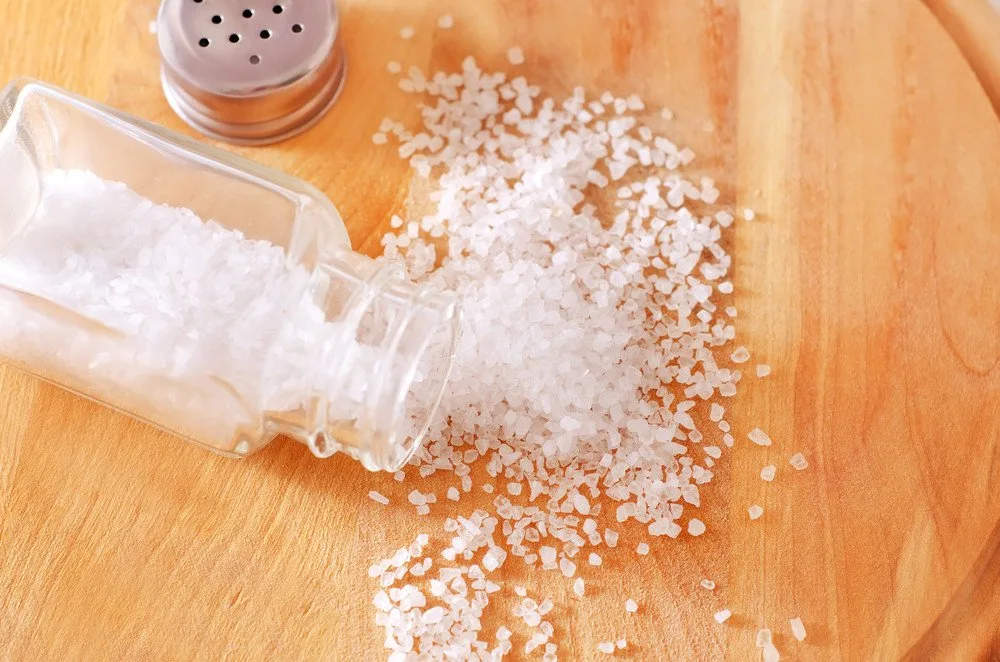I’ll admit it – I always add salt to my food, sometimes before I even taste it. Yes, I know, that’s likely not a good thing and it doesn’t seem like I’m the only one. According to the Centers for Disease Control and Prevention, 90% of Americans two years or older exceeds the recommended 2,300 mg consumption of sodium (one teaspoon of table salt) each day.
So, how are our excessive salty habits affecting our lifespan?
Salt and Longevity: What’s The Link?
In a study published in the European Heart Journal, researchers set out to examine the link between frequently adding salt to your food, and the risk of premature death (which was defined as dying before age 75.). The researchers used data from the UK Biobank – an international health resource, with a database that contained the medical information of over 500,000 volunteers throughout England, Wales, and Scotland between 2006 and 2010.
After adjusting for factors that could affect mortality in 501 379 participants, such as age, smoking and alcohol habits as well as chronic condition diagnosis, the researchers then followed the participants for an average of nine years.
Too salty for your health
According to the findings of the study, the participants who always salted their food after cooking were more likely to end up in an early grave.
The researchers found that always salting your food after cooking made one 28% more likely to die early from any cause when compared to adults who never or rarely add salt to their food. The study suggested that salting every meal at age 50 may reduce life expectancy by 1.5 years for women and 2.28 years for men.
“Our findings indicate that higher frequency of adding salt to foods is associated with a higher hazard of all-cause premature mortality and lower life expectancy.”
The researchers pointed out that eating too much salt in your food could also indicate that you may be engaging in other unhealthy lifestyle habits. While the findings did take into account lifestyle factors, there is a chance that it may have had an effect on the results.
Fruits and vegetables offer salt relief
As alarming as the results are for salt-lovers such as myself, there is some good news that came out of the study. The researchers found that the risk of early mortality declined in those who consumed higher amounts of fruits and vegetables,
“We were not surprised by this finding as fruits and vegetables are major sources of potassium, which has protective effects and is associated with a lower risk of premature death,” Lu Qi , MD, PhD, said, co-author of the study, said.
According to separate research, potassium and sodium have an inverse relationship, with one increasing as the other one decreases. As a result, potassium can help to lessen the effects of sodium, such as high blood pressure.
Is salt too bitter for us?
The body needs salt. Rather, it needs sodium for bodily processes such as proper fluid balance and transmitting nerve impulses.

Ghita Marin/Shutterstock
Low levels of sodium in the body can be dangerous, but so can high levels of it. In addition to high blood pressure, excessive sodium intake can increase the risk of stroke and heart disease.
While more research is definitely needed, as the study was an observational one and it cannot prove cause and effect, this doesn’t mean that a high-salt diet is not caused for concern.
Cutting back on salt
You may have started thinking that your salt shaker is trying to harm you. However, you might be surprised to hear that the majority of sodium that you consume comes from processed foods. So, if there’s salt at the dinner table, and in the shops, how can you get better at avoiding it?
Toby Amidor, MS, RD, CDN, FAND, a nutrition expert and best-selling author, spoke to Eat This, Not That and advised against using the salt shaker before tasting your food. She also proposes only buying canned foods that are either free of salt or low in sodium. Lastly, if dining out, Amidor recommends that you remember that most dishes are extremely high in sodium. As such, it would be best to either eat out less or use the nutrition facts panel at the establishment.
Want to know more?
We all know that an apple a day keeps the doctor away, but what does it do for aged skin? If you’re looking for an answer, an avocado a day is a great way to keep the wrinkles away.
References
Ma, H., Xue, Q., Wang, X., Li, X., Franco, O. H., Li, Y., Heianza, Y., Manson, J. E., & Qi, L. (2022). Adding salt to foods and hazard of premature mortality. European heart journal, 43(30), 2878–2888. https://doi.org/10.1093/eurheartj/ehac208




![women [longevity live]](https://longevitylive.com/wp-content/uploads/2020/01/photo-of-women-walking-down-the-street-1116984-100x100.jpg)










